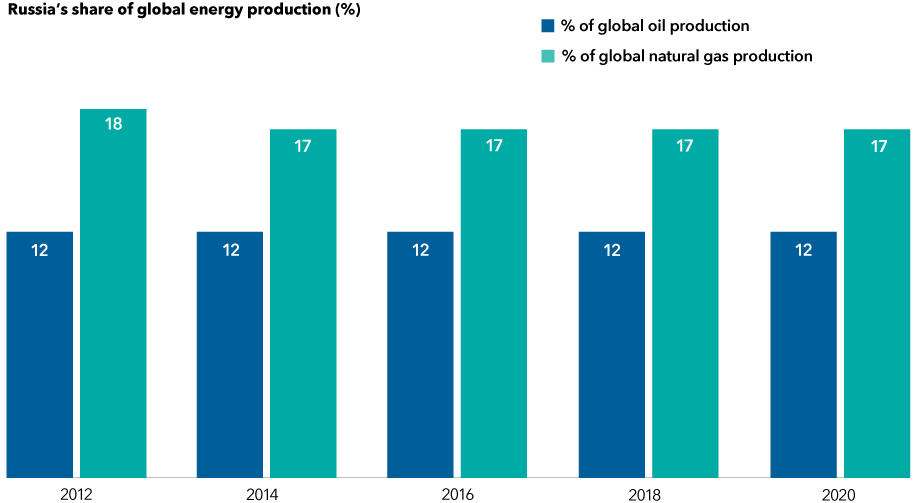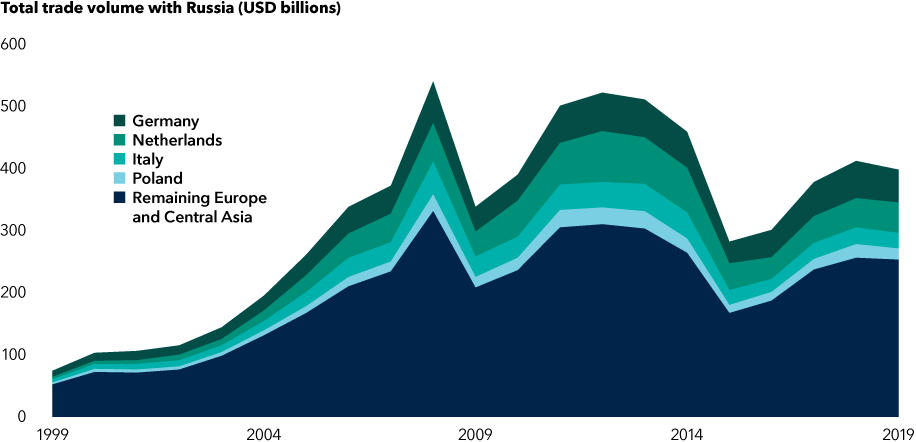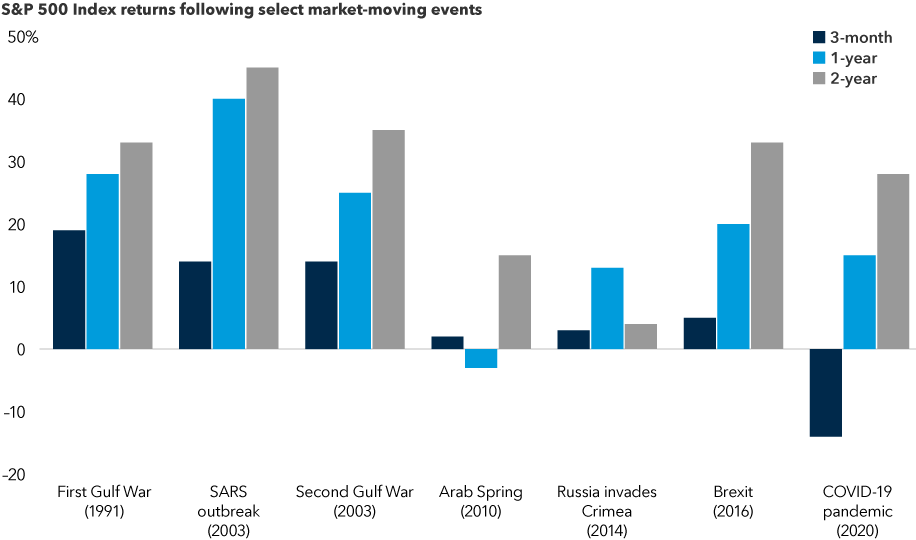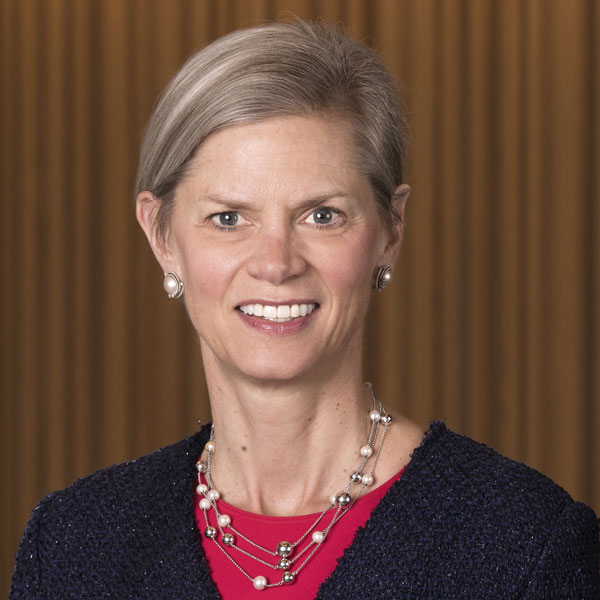Chart in Focus
Russia-Ukraine Conflict
Russian attack brings long-sought European unity
Talha Khan, political economist
There is no shortage of tragic events unfolding in Ukraine — from the loss of life to the shattering of international peace accords to the economic damage suffered on all sides of the conflict. But if there is a silver lining to this catastrophe, it may be found among the growing chorus of nations joining to oppose Vladimir Putin’s military aggression.
Russia’s invasion of Ukraine has managed to do in one week what many observers of Europe have agonized over for decades: It has singularly united the European Union. Along with the United States and NATO, Western democracies haven’t been this closely aligned in purpose since the aftermath of the September 11 terrorist attacks.
The most profound shift happened over the weekend with new German Chancellor Olaf Scholz signaling radical changes in nearly every sacred pillar of German foreign policy. Among other extraordinary measures, Scholz announced a one-time increase of €100 billion in defense spending and committed to allocate more than 2% of Germany’s gross domestic product to annual defense spending.
Other European nations have signaled their resolve in various ways, including shipping weapons to Ukraine, accepting Ukrainian refugees and looking for alternatives to Russian oil and gas supplies. Russia is a major trading partner for Europe, and it remains to be seen whether the continent can forego key Russian commodities given there are no easy substitutes.
Russia remains one of the world’s largest energy producers

Sources: Capital Group, BP Statistical Review of World Energy 2021.
Will this new-found European unity persevere once the Russian threat has passed? I believe it will. It must endure if the EU expects to thrive in a brave new world that has shifted from 30 years of relative peace and cooperation to populist politics, heightened trade tensions and outright military conflict.
Geopolitics has returned as a major driver of world events. Political leaders and investors alike have no choice but to confront that reality.
The U.S. economy, Fed rate hikes and the “R” word
Darrell Spence, U.S. economist
While the threat to Europe’s economy is far greater, the U.S. economy probably won’t emerge from this conflict unscathed. Rising energy prices were a problem prior to the invasion of Ukraine and now are moving higher as global markets contemplate a world without Russia’s vast oil and gas supplies.
That could very well lead to higher U.S. inflation, which is already running hot. Price increases among food, energy, and other goods and services essentially rob U.S. consumers of their purchasing power. That can put a damper on consumer spending, which accounts for about 70% of U.S. economic activity.
Could it be bad enough to push the U.S. into recession? I’d put the chances at 25% to 30% by late 2022 or early 2023. The R word is a much bigger issue for Europe, of course, because of its proximity to the crisis and dependence on Russian trade, particularly in the energy sector. Europe is more exposed than the U.S., but both economies could falter if the conflict isn’t resolved soon.
Trade with Russia is a key component of the European economy

Sources: Capital Group, World Bank, World Integrated Trade Solution (WITS). U.S. dollar values indexed to 2000. Total trade volume is calculated as the combined valued of imports and exports.
With the U.S. Federal Reserve poised to raise interest rates later this month, some market participants are wondering if the Ukraine crisis might give Fed officials a reason to keep rates near zero. Stocks rallied late last week partly on this sentiment, but I don’t see it happening.
The Fed is in a tough spot. With U.S. inflation hitting a 40-year high of 7.5% in January — and a war-related energy shock potentially pushing it even higher — Fed officials have no choice in my view but to raise rates at their March 15-16 meeting. In an ideal world, they could pause. But at this level of inflation, I don’t believe they have the luxury. That said, the conflict probably means a hike of 50 basis points is off the table. Rather, a more moderate 25 basis point increase is likely.
Fed officials have clearly telegraphed their intention to tighten monetary policy. Investors should expect them to do so.

Capital Ideas™ webinars
Insights for long-term success
CE credit available
Stay focused on long-term investment goals
Jody Jonsson, portfolio manager
The invasion of Ukraine is a shock to the system. It represents an overthrow of the world order we have known for the last 30 years. Markets had a hard time anticipating how this would play out and couldn’t imagine what actually happened. These events further add to the negative investor sentiment present due to rising energy prices, higher inflation and signs of slowing global economic growth.
Since the beginning of the year, we’ve been in an environment where price-to-earnings multiples are experiencing a significant correction, especially at the frothiest ends of the market. If the crisis in Ukraine eventually causes central banks to refrain from raising interest rates, that could be positive for some companies with solid earnings growth that are reasonably valued, especially if oil is not an input for them. With oil prices above $100 a barrel now, that will be a major headwind for energy-dependent companies.
I’m also growing more concerned about the banking sector, particularly European banks. The economic outlook for Europe has deteriorated significantly in recent days. I think that creates more credit risk and raises the question of whether we are heading toward a recession later this year or next.
Market shocks have often been followed by market gains

Sources: Capital Group, Refinitiv Datastream, Standard & Poor's. Values for 3M, 1Y and 2Y reflect the three-month, one-year and two-year price returns for the Standard & Poor’s 500 Composite Index, respectively, following the closest trading day to the listed event.
It’s important to remember, however, that long-term investors can still find opportunity in the midst of chaos — be it war, inflation, or recession. There are still many companies that are growing and thriving and innovating, so that’s where I focus most of my time and energy.
My primary message for investors is to stay committed to your long-term investment goals. Don’t be disoriented by moments of crisis. Remember that markets are resilient and have powered through many challenges. Now is the time to evaluate your portfolio, stay focused on your path and try not to let external events derail your objectives.
The market indexes are unmanaged and, therefore, have no expenses. Investors cannot invest directly in an index.
Standard & Poor’s 500 Composite Index is a market capitalization-weighted index based on the results of approximately 500 widely held common stocks.
Standard & Poor’s 500 Composite Index (“Index”) is a product of S&P Dow Jones Indices LLC and/or its affiliates and has been licensed for use by Capital Group. Copyright © 2022 S&P Dow Jones Indices LLC, a division of S&P Global, and/or its affiliates. All rights reserved. Redistribution or reproduction in whole or in part is prohibited without written permission of S&P Dow Jones Indices LLC.
Our latest insights
-
-
Economic Indicators
-
Demographics & Culture
-
Emerging Markets
-
Never miss an insight
The Capital Ideas newsletter delivers weekly insights straight to your inbox.
 Talha Khan
Talha Khan
 Darrell Spence
Darrell Spence
 Jody Jonsson
Jody Jonsson